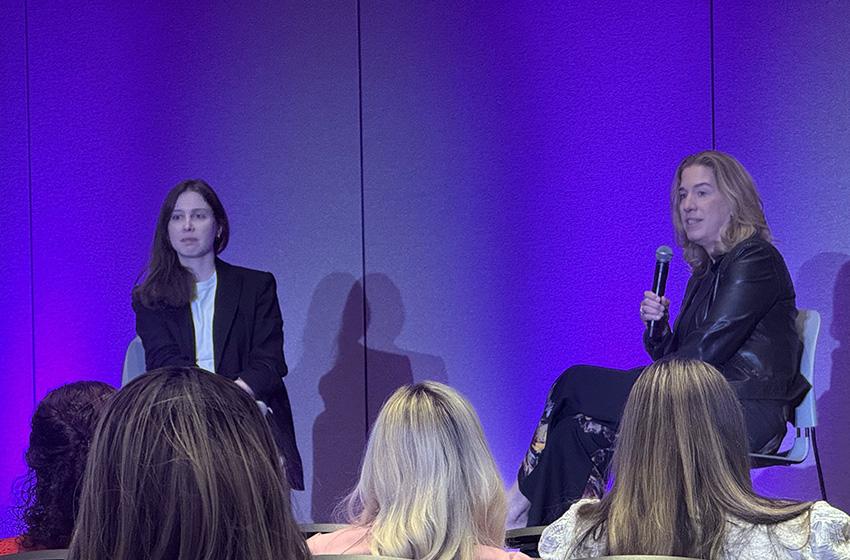Ai4 2025 Fireside Chat highlights "Women’s Leadership Role in AI Transformation"
The Ai4 2025 conference featured a candid and wide-ranging fireside chat on the future of Women in AI leadership, workplace culture, and inclusion, with Fortune journalist and Most Powerful Women Editor Emma Hinchliffe interviewing Margo Georgiadis, CEO-Partner at Flagship Pioneering and Co-Founder and CEO of Montai Therapeutics. The discussion explored how AI can serve as a partner to amplify human intelligence, productivity, and creativity—and the responsibility leaders have to ensure organizations are adaptive and empowered by it.
Georgiadis, who has held senior roles at McDonald’s, Mattel, and Google, described her current work in life sciences, where Montai Therapeutics is focused on creating small-molecule therapeutics for chronic disease. Despite breakthroughs in treatment, she noted that even among the most severely diagnosed patients, less than half have access to life-transforming medicines, and among all diagnosed patients, access drops below 10 percent. Her company uses AI to reimagine drug discovery, aiming to close that gap.
The conversation shifted to the challenges faced by AI-native startups and enterprise adopters. Georgiadis pointed out the fierce competition among foundation-model companies and AI-focused applications, with long-term survival hinging on becoming the “application of record” in industries like healthcare where user trust is critical. She emphasized that beyond competitive pay, culture is a decisive factor in attracting top talent, particularly women. Environments that empower employees to take creative risks, contribute meaningfully from day one, and feel genuinely valued are more likely to retain high performers.
She shared stories highlighting how culture influences women’s participation in AI, including instances where tone-deaf recruiting approaches alienated top female candidates. Many women, she said, prioritize impact and belonging over compensation alone. Leaders should re-examine recruitment processes, job descriptions, and promotion pathways to counter bias, using AI tools to broaden candidate pools and analyze hiring pipelines for inequities.
Georgiadis stressed that women’s representation in AI leadership is not a diversity box to tick but a business imperative. At a time when AI is reshaping industries, the design and deployment of these technologies must be inclusive to ensure products meet the needs of diverse users. Drawing on examples from her tenure at companies like Ancestry, she underscored the importance of involving varied perspectives in product development and testing to prevent bias—whether in consumer services or specialized B2B applications.
The discussion also addressed the persistent confidence gap in AI adoption. Surveys show that only around 30 percent of professional women feel comfortable with AI, compared to 74 percent of men. Georgiadis argued that closing this gap requires active engagement from the C-suite, with leaders dedicating two to three hours each week to learning about AI, experimenting with tools, and seeking out industry perspectives. She also identified “change integrators”—often women with both domain expertise and the ability to envision and communicate change—as key to overcoming cultural resistance to AI-driven transformation.
For women at earlier career stages, Georgiadis advised seeking environments aligned with their values, using personal networks to evaluate company culture, and being proactive in expressing career aspirations. Leaders, in turn, must recognize that cultural and gender differences influence how employees advocate for themselves and adjust talent management practices accordingly.
Closing the session, Georgiadis reiterated that AI’s true potential lies not in replacing human capability but in augmenting it. Leaders who commit to building adaptive, inclusive organizations will not only unlock greater innovation but also create workplaces where the next generation of AI talent—especially women—can thrive.









